Today, June 5, we celebrate the feast day of Saint Boniface (673-754), patron saint of Germany, bishop, and martyr of the Church. The life of Saint Boniface is marked by an enthusiastic response to the call of the Lord—one which led him to leave a respected and safe life at the age of 40, and undertake a dangerous mission of evangelization and conversion in hostile, pagan lands. His zeal for spreading the Word of God was not easily diminished, despite failures, threats, and eventual death. Saint Boniface is looked to as the founder of the Church in modern-day Germany.
Born and named Winfrith in Devonshire, England, Boniface grew up in a noble family of some wealth. As a boy Boniface begged his parents to allow him to enter the nearby monastery at Exeter following a visit by some local monks. So impressed with their life, Boniface joined the community, learning all he could, and proving himself to be an apt and scholarly student. After a short time, he transferred to a larger monastery, in Bursling, and there became a well-respected teacher.
Boniface spent the next ten years teaching and was so well respected that students traveled great distances to attend his lectures, circulating their notes throughout the whole of England. At age thirty, Boniface was ordained a priest, and began preaching, as well as teaching, with great impact. His life, while diligent and obedient, was comfortable and he was assured continued success in the English church. However, Winfrith felt called to missionary work. He petitioned his abbot several times, until was finally granted leave to travel to modern-day Netherlands, to assist a missionary there, Willibrord, struggling to bring the Gospel to those there who continued to practice paganism. Upon arriving in Friesland, Winfrith discovered that the ruler of those parts, Duke Radbold, had virtually declared war on Christianity, and without support, their mission would not succeed. Prudently, Winfrith returned to England where his community welcomed him back, attempting to elect him abbot. He refused, and instead traveled to Rome for a personal audience with the pope, hoping to secure a Papal Commission to return to Friesland.
Pope Gregory II welcomed the adventurous and obedient servant that Winfrith had become, renaming him Boniface, and providing him with a general Papal Commission to bring the Word of God “to the heathen.” Saint Boniface set off with zeal, traveling through modern-day Germany and Bavaria, locating and working with the missionary Willibrord (who by this time was well advanced in years). Willibrord wished for Boniface to assume his work, but Boniface felt called to continue traveling deeper into non-Christian territories, asserting that his commission led him not just to one dioceses, but to all “the heathen.”
Saint Boniface had amazing success, converting two local chieftains who became zealous Christians, leading to the conversion of their tribes. He was granted a plot of land, upon which he founded the monastery at Amoeneburg. His preaching style was direct and easy to understand, and he took care to incorporate local traditions—whenever possible—into his teachings. For example, there was a local game in which they sticks called kegels were thrown at smaller sticks called heides. Boniface bought religion to the game, having the heides represent demons, and knocking them down showing purity of spirit.
However, Saint Boniface was also quite orthodox in his teaching, and would quickly point out any discrepant or pagan practices that crept into the worship of the people. Such was his success that he was summoned by Pope Gregory II back to Rome. There, Boniface was consecrated a bishop and granted general jurisdiction over "the races in the parts of Germany and east of the Rhine who live in error, in the shadow of death." Gregory II also provided Boniface with a Papal Letter to Charles Martel, the duke who ruled Bavaria and had earned himself the nickname “Hammer” due to his swift and authoritarian rule and retribution. Boniface delivered the letter on his return trip to, and was granted civil protection. Between the commission of the pope, and the support of the duke, Boniface was free to increase his efforts. He decided to drive the pagan beliefs from the region by attacking their source.
Many in the area continued to worship Norse gods, including Thor, who were believed to reside in the forms of large stately trees. After announcing his intentions to the tribes, who watched, awaiting the retribution of Thor, Boniface walked up to the tree, removed his shirt, took up an axe, and without a word he hacked down the six foot wide wooden god. The tree fell, splintering into four parts, upon one of which Boniface climbed, addressing the crowd that had gathered. "How stands your mighty god? My God is stronger than he." From his perspective, the saint could see that the fallen tree landed in the shape of the cross. Also, the only tree spared in the area was a small fir tree, which many consider the origin of the Christmas tree. The crowd's reaction was amazement and confusion, and conversions began. Using the oak wood from the tree, Boniface had a chapel built on the spot, dedicated to Saint Peter.
Boniface continued his mission across Bavaria, Germany, and Holland, encountered previous missionaries who had not remained true to the teachings of the Church. He undertook significant Church reform, instructing the missionaries, priests, and brothers, and re-establishing obedience to the authority of the Church. In many cases, Boniface worked with the individuals in question, not to defrock them and remove them from service—citing the increased damage that would do to the faithful—but to reform, renew, and reconsecrate them to the Lord. He was both practical and obedient, seeking the will of the Lord, the counsel of respected bishops, and the success of the growth of the one, true Church. From a letter written by Saint Boniface to a respected Archbishop:
“Meantime we greatly need your advice and counsel. When I find a priest who long since fell into carnal sin and after doing penance was restored to his office by the Franks, and now dwells in a large district with no other priests and is administering baptism and celebrating Mass for a population who are believers but are prone to error- if now I withdraw him, according to the most approved canons, then, because of the scarcity of priests, infants will die without the sacred water of birth, unless I have some better man to replace him. Judge therefore between me and the erring people, whether it is better, or at least the lesser evil, that such a man should perform the service of the sacred altar or that the mass of the people should die as pagans because they have no way of securing a better minister.
Or when in the multitude of priests, I find one who has fallen into that same sin and with penitence has been reinstated in his former rank, so that the whole body of priests and people have confidence in his good character, if I should now degrade him, his secret sin would be revealed, the mass of the people would be shocked, many souls would be lost through the scandal and there would be great hatred of priests and distrust of the ministers of the Church, so that all would be despised as faithless and unbelieving. Therefore we have boldly ventured to bear with this man and allow him to remain in the sacred ministry, thinking the danger from one man's offense would be less evil than the perdition of the souls of almost the entire people.”
Saint Boniface, himself, following successful re-establishment of discipline and communication between these misguided missions and the Church, as well as establishing several new monastic communities, was consecrated Archbishop of the entire region. Nearing seventy years old, but no less zealous in his desire for conversion, Boniface returned to Friesland—the first place of his work in Bavaria—to minister to his first congregation who were slipping back into paganism. He gave up his archbishopric, dressed again in the simple robes of the monk, and carried with him only what he needed, including the text written by Saint Ambrose, The Advantage of Death.
Upon arrival at Friesland, he arranged for a group of recent converts to join him, that he might teach and Confirm them. While waiting in his tent, reading the Bible, a group of pagans appeared in the encampment with intent to harm Boniface and his companions. His companions would have opposed them, but he said, "My children, cease your resistance; Spill no useless blood. The long-expected day is come at last. Scripture forbids us to resist evil with evil. Let us put our hope in God: He will save our souls." He and approximately fifty of his followers were killed. In the moment of his death, Saint Boniface raised the Bible he was reading above his head. The sword of his slayer passed through the Book before cleaving the blessed saint.
Following the departure of the pagan barbarians, a small group of Christians came to the campsite. They carried the relics and body of Saint Boniface to the cathedral at Fulda for burial, where it remains today. The Bible that Boniface was reading can also be found at the cathedral at Fulda.
From a letter written by Saint Boniface:
“In her voyage across the ocean of this world, the Church is like a great ship being pounded by the waves of life's different stresses. Our duty is not to abandons ship but to keep her on her course.
Let us stand fast in what is right, and prepare our souls for trial. Let us wait upon God's strengthening aid and say to him: "O Lord, you have been our refuge in all generations."
Let us trust in him who has placed this burden upon us. What we ourselves cannot bear let us bear with the help of Christ. For he is all-powerful, and he tells us: "My yoke is easy, and my burden light."
Let us continue the fight on the day of the Lord. The days of anguish and of tribulation have overtaken us; if God so wills, "let us die for the holy laws of our fathers," so that we may deserve to obtain an eternal inheritance with them.”
The life of Saint Boniface is one marked by fidelity, obedience, orthodoxy, and certainty in the Lord. This courageous saint could have easily led a life of comfort, teaching and preaching in England. Instead, he followed where the Lord led him, understanding the way of Christ is often difficult, dangerous, and filled with suffering… even death! But that the reward of conversion, like the redemption of the cross, outweighs the struggle and sacrifice, glorifying the Lord!
A Prayer, written by Saint Boniface
Eternal God, the refuge and help of all your children,
we praise you for all you have given us,
for all you have done for us,
for all that you are to us.
In our weakness, you are strength,
in our darkness, you are light,
in our sorrow, you are comfort and peace.
We cannot number your blessings,
we cannot declare your love:
For all your blessings we bless you.
May we live as in your presence,
and love the things that you love,
and serve you in our daily lives;
through Jesus Christ our Lord.
Amen.
Lord,
Your martyr Boniface
spread the faith by his teaching
and witnessed to it with his blood.
By the help of his prayers
keep us loyal to our faith
and give us courage to profess it in our lives.
Grant this through our Lord Jesus Christ, Your Son,
who lives and reigns with You and the Holy Spirit,
one God, for ever and ever. Amen.
Year 2: Day 156 of 365
Prayer Intentions: Fidelity and Obedience; Willingness to suffer joyfully for the Lord.
Requested Intentions: Successful employment for couple (K); For employment for children (K); For health of friend, for successful relationships for children, for safe pregnancy for daughter (C); For the health of a mother (J); Virtue for daughter (V); Successful acceptance to college for nephew (M); For the health of a cousin (T); Freedom from legal difficulties for husband (S); Husband’s freedom from illness (L); Personal intentions (S); Successful passing of dental board examination (P); Blessings on a family (Z); Successful permanent employment (C); Healing of a son with autism (J); Son’s successful employment (L); For the intentions of family and relatives, for the Carthusian community (T); For personal intentions (A); Restoration of lost hearing (C); Resolution of relational and financial challenges (S); Comfort following loss of husband, security for family, assistance with housing (B); Healing and return of brother (O); Successful hermitage foundation (S); Support from family, permission to marry (H); Recovery of wife following surgery, freedom from depression (W); Protection and recovery of mentally ill daughter (J); Successful resolution to legal proceedings (N); Freedom from worry and successful employment (M); For successful sale of home and freedom from debt (J); Freedom from pain and illness (E).
Why pray the Rosary every day for a year?
Each time the Blessed Virgin has appeared-- whether it be to Saint Bernadette Soubirous at Lourdes; to Lucia, Jacinta, and Francisco at Fatima; or to Mariette Beco at Banneux-- she has asserted the importance, saving grace, and power of praying the Holy Rosary on a daily basis. Based upon her words, the Rosary is penance and conversion for sinners, a pathway to peace, an end to war, and a powerful act of faith in Jesus Christ. Pope Paul VI presented the Rosary as a powerful means to reach Christ "not merely with Mary but indeed, insofar as this is possible to us, in the same way as Mary, who is certainly the one who thought about Him more than anyone else has ever done."
To show us how this is done, perhaps no one has been more eloquent than the great Cardinal Newman, who wrote: "The great power of the Rosary consists in the fact that it translates the Creed into Prayer. Of course, the Creed is already in a certain sense a prayer and a great act of homage towards God, but the Rosary brings us to meditate again on the great truth of His life and death, and brings this truth close to our hearts. Even Christians, although they know God, usually fear rather than love Him. The strength of the Rosary lies in the particular manner in which it considers these mysteries, since all our thinking about Christ is intertwined with the thought of His Mother, in the relations between Mother and Son; the Holy Family is presented to us, the home in which God lived His infinite love."
As Mary said at Fatima, "Jesus wants to use you to make Me known and loved. He wishes to establish the devotion to My Immaculate Heart throughout the world. I promise salvation to whoever embraces it; these souls will be dear to God, like flowers put by Me to adorn his throne."

Subscribe to:
Post Comments (Atom)










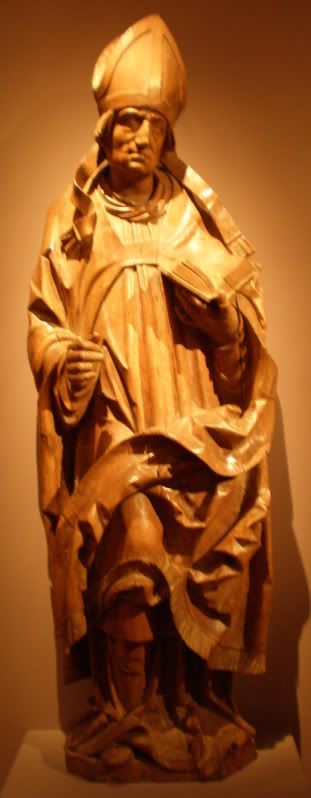
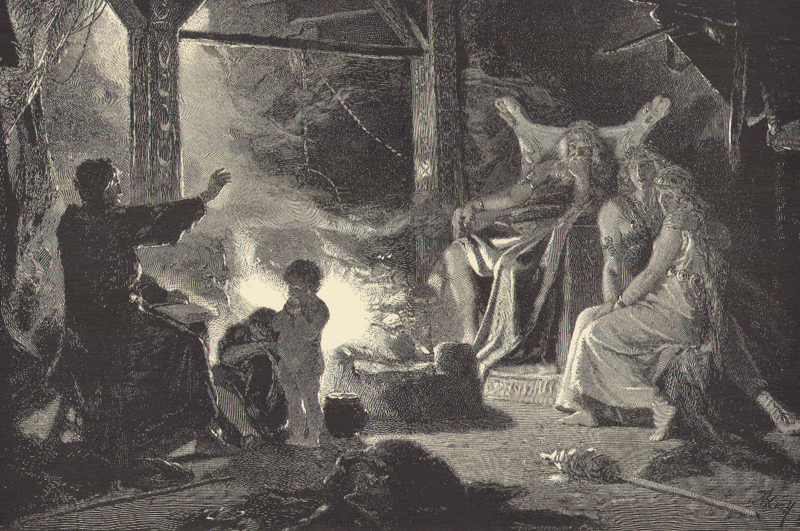

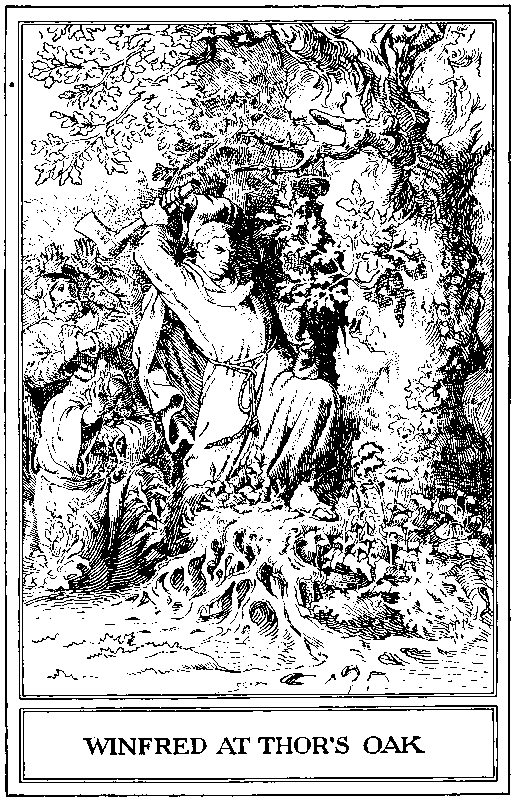





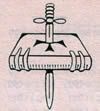

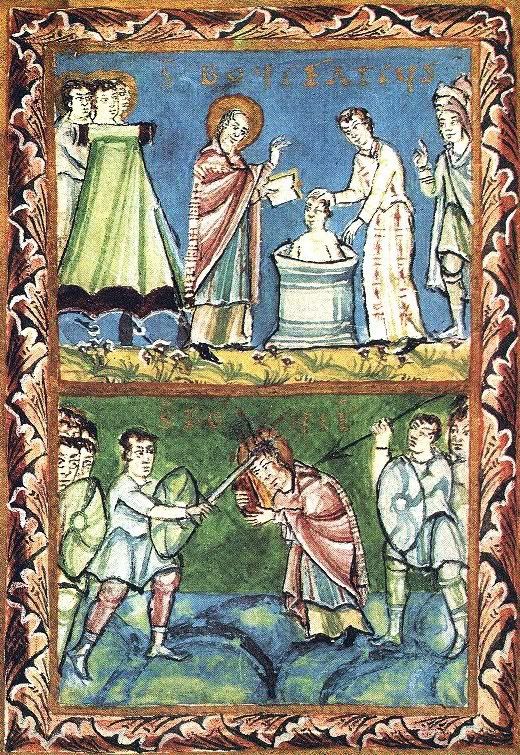



0 comments:
Post a Comment
Thanks for leaving a comment. If you wish to submit a prayer request, however, please do so above, using the "Contact" tab.